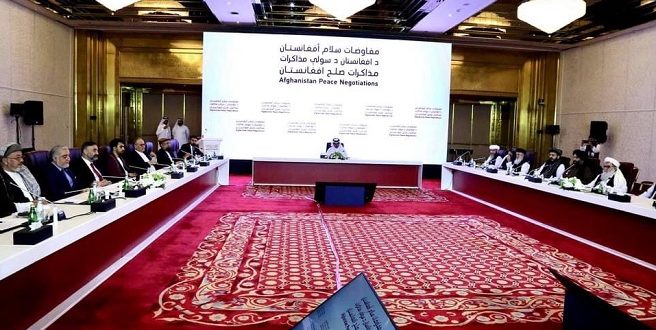AT News
KABUL: A top United Nations official on Wednesday urged the Taliban to stop the fighting and bloodshed and return to peace talks with Afghan government following a wave of assaults over past week which have led to the fall of several cities.
“Failure to stop the escalating violence and human rights abuses has catastrophic consequences for the Afghan people,” UN High Commissioner for Human Rights Michelle Bachelet said in a statement on Tuesday.
Northern and southern parts of Afghanistan have been convulsed by days of Taliban violence and rampages, which has left several cities, including Zaranj, Farah, Sheberghan, Sare-Pul, Aibak, Pule-Khumri, Taleghan, Faizabad, Kunduz cities, in militant hands and sent tens of thousands fleeing for their lives to safer areas.
She called on the international community to take immediate action to prevent catastrophic consequences for the Afghan people, warning that civil war could lead to the death of large numbers of civilians.
“Since July 9 this year, at least 183 civilians have been killed and 1,181 people, including children, have been injured in the cities of Lashkargah, Kandahar, Herat and Kunduz alone,” she said, stating that these figures are the only ones they have been able to record. “The actual number of civilian casualties is very high.”
“The Taliban must stop all their attacks on cities,” Bachelet said. “The situation will worsen for many Afghans until all sides return to the negotiating table and a peaceful solution is found.”
Referring to Afghanistan-centered meeting between Russia, the United States, China and Pakistan in Doha, Bachelet said the international community owes its full potential to reduce tensions in Afghanistan, end the conflict and resume the peace process.
She added that the Taliban’s takeover of many cities had created ‘fear and panic’. However, she warned that increasing the number of pro-government militias mobilized against the Taliban could also put civilians at risk.
Despite this, the Taliban have so far ignored international calls for a ceasefire and bloodshed in Afghanistan, and its militias continue to attack cities in the country. They now control nine of Afghanistan’s 34 provincial capitals, six in the north, while fighting continues in three other cities.
The group has also tightened its grip on Mazar-e-Sharif, the largest city in northern Afghanistan, and if it gains control of the city, known for its opposition to the Taliban, the Kabul government will lose control of the entire region.
Thousands of displaced families, especially women and children, across the country are in urgent need of shelter, food, clothing and medicine. Displacement, along with the outbreak of the coronavirus, has made droughts, unemployment and poverty more difficult than ever for millions, especially those displaced by war and insecurity.
Moreover, the Independent Human Rights Commission has called for more serious attention from the government, international community and domestic and international aid agencies to reach out to the displaced people. One of the lasting harms of war is the displacement of more children and their deprivation of education.
 Afghanistan Times
Afghanistan Times




